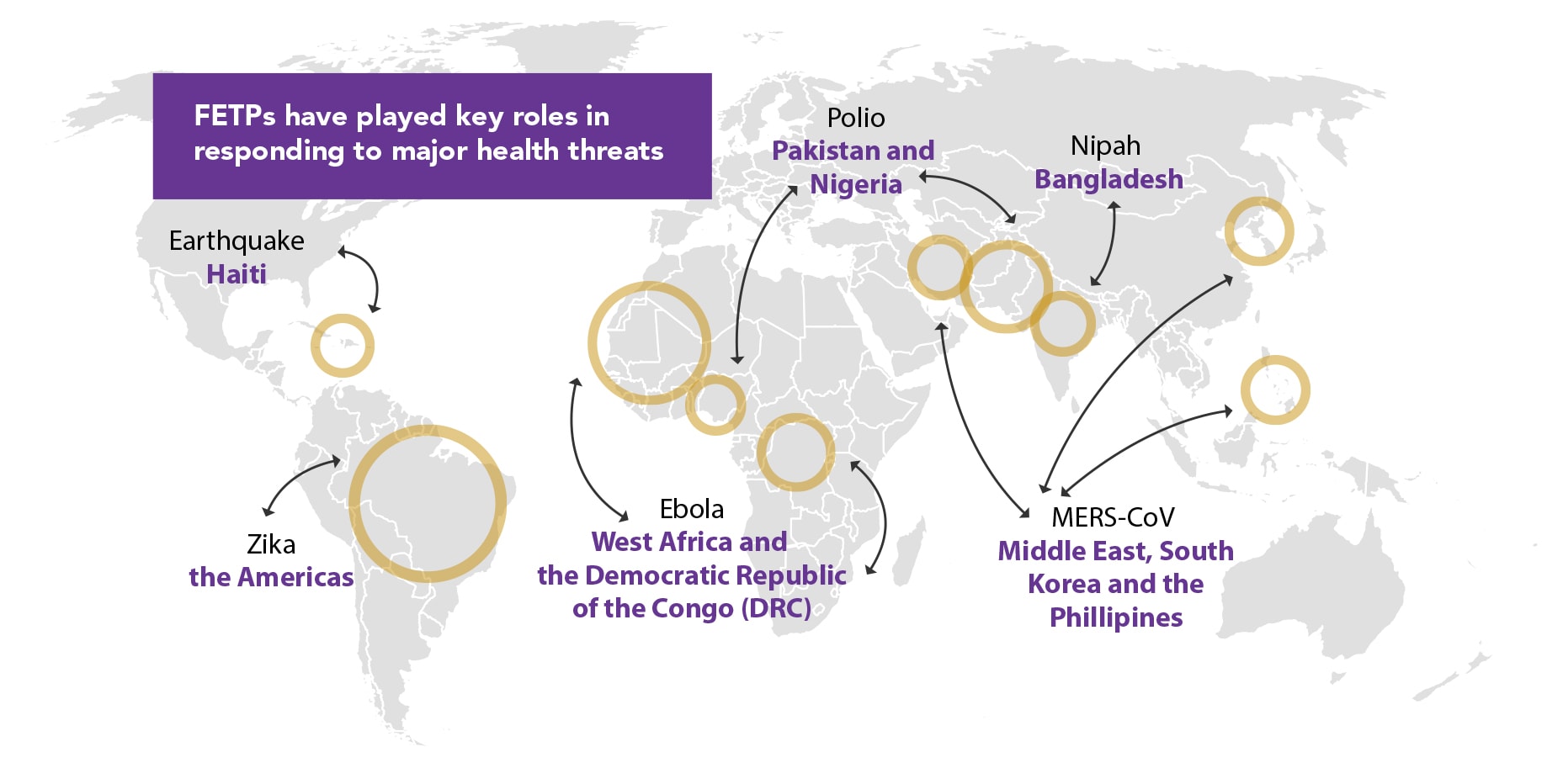Field Epidemiology Training Program (FETP) Fact Sheet
Training Disease Detectives Around the Globe

At CDC, people are at the heart of everything we do. One way we keep people safe is through the Division of Global Health Protection’s (DGHP) flagship Field Epidemiology Training Program (FETP).
Since 1980, CDC-supported FETPs have helped build a global workforce of “disease detectives” with the necessary skills to collect, analyze, and interpret data and rapidly respond to outbreaks. Global health security relies on a skilled public health workforce to protect our health, identify risks, and make effective decisions during a public health emergency.
FETPs increase countries’ ability to detect and respond to health threats worldwide.
Disease detectives are “boots on the ground,” helping countries to identify and stop health threats at the source — both those we anticipate and those we don’t expect.
Disease detectives track and eliminate outbreaks before they spread.
FETPs address the severe worldwide shortage of skilled disease detectives.
For strong disease detection systems, the International Health Regulations call for one epidemiologist per 200,000 people, but many countries have not met this goal. FETPs help countries build critical global health security capabilities by expanding and strengthening this public health workforce.
FETPs build critical relationships with other countries.
The ongoing success of DGHP-led training programs has fostered mutually beneficial relationships with ministries of health and other partners around the world. By exchanging ideas and cultivating relationships, FETPs have laid the foundation — and, in many cases, opened the door — for other programs across CDC to establish other health initiatives.
DGHP works closely with partner countries to establish FETPs and train disease detectives in the skills needed to gather data and turn it into action. Trainees who “learn by doing” provide public health services while gaining essential skills to collect, analyze, and use data to prioritize health issues and inform policy decisions. The FETP model comprises of three tiers—FETP-Frontline, FETP-Intermediate, and FETP-Advanced. All three tiers use the same approach—25% condensed classroom instruction followed by 75% field placements—to gain experience and competence in field epidemiology.

- Earthquake recovery in Haiti
- Zika virus outbreak in the Americas
- Ebola virus disease outbreak in West Africa and the Democratic Republic of the Congo (DRC)
- Polio outbreaks in Pakistan and Nigeria
- Nipah virus outbreaks in Bangladesh
- MERS-CoV transmission in the Middle East, South Korea, and the Phillipines
More than 80 countries have participated in CDC supported FETPs. FETPs have trained more than 21, 000 graduates across the three tiers as of June 2022. In addition to building the public health workforce, FETPs have helped graduates stay connected as they guide and mentor the next generation of public health leaders. FETP residents and graduates respond to the world’s most urgent health events, including COVID-19, across the globe.
The work of the CDC and FETP has saved countless lives and been paramount to tracing and stopping disease outbreaks in Guinea.
There are still gaps in disease detection and response systems that make us vulnerable to health threats. These gaps include the slow pace of establishing FETPs worldwide, securing sustainable resources for FETPs, and developing measurable targets for field epidemiology capacity. To help close these gaps, CDC and partners, including WHO, established the Global Field Epidemiology Roadmap which includes the development of the FETP Enterprise. These guiding principles create a path forward to improve every country’s capacity to protect and promote the health of its citizens.